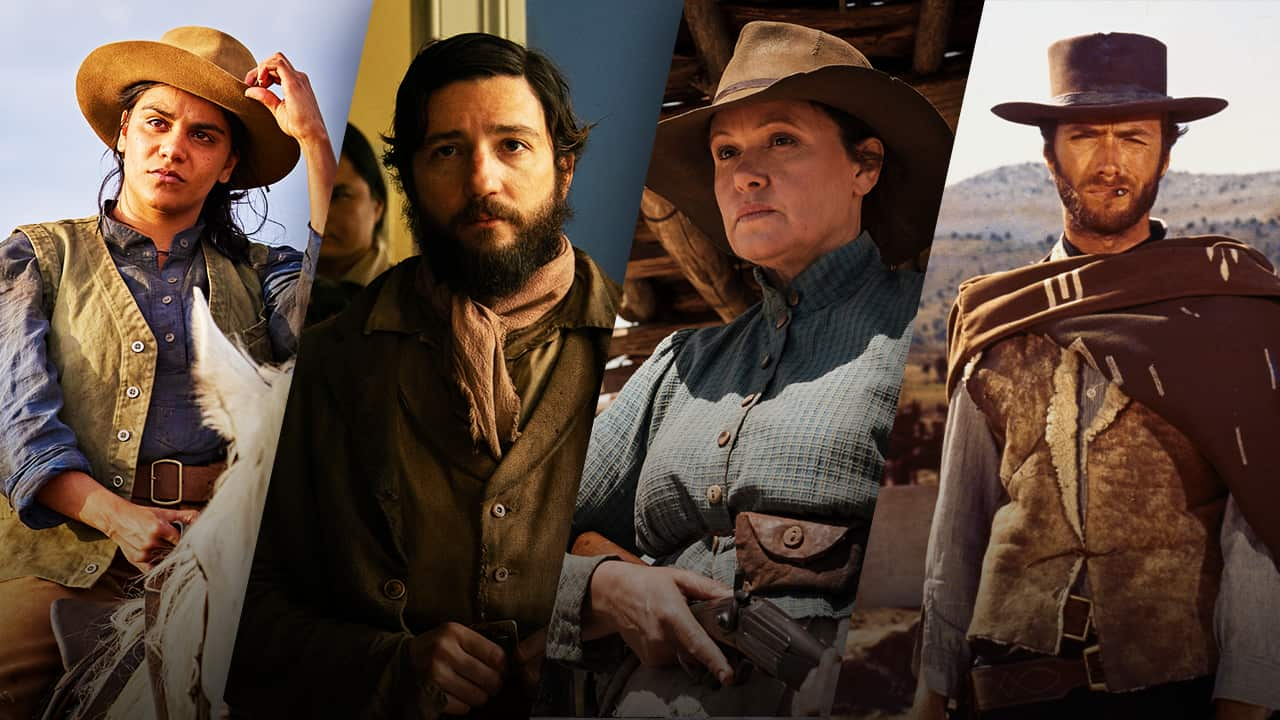It’s fair to say much has changed in the music industry since the pop cultural zenith of the late 90s - when CD sales were booming, artists could be transformed into overnight success stories, and the multi-billion-dollar record industry was a force to be reckoned with.
One man who is uniquely placed to talk about such times is , the much-loved singer and songwriter who was at the forefront of the Australian music scene during this period of radical change. So, when Marc Fennell and his team set out to make their new two-part documentary and needed an expert on the evolution of music over the last 30 years, they knew exactly who to call.
“I'm so glad Ben agreed to be in the film, because a lot of musicians weren't comfortable talking about the business,” says Fennell when looking back on his time making the documentary. “And actually, a lot of musicians don't like thinking about the business. He's a really smart, intelligent, creative thinker.”
lays bare the rise and fall story of Gold Coast based tech start up Guvera, who took on heavyweights like Spotify in their quest to stamp out piracy and launch the world’s first legitimate music streaming service.
For Lee, sitting down with Fennell was a welcome opportunity to reminisce on simpler times, such are his fond memories for this period of hope and promise for would-be Indie artists.
“That was a specific moment that I remember music was still very much a hand-to-hand industry…where physical formats were meaningful objects as opposed to just being containers for the music,” recalls Lee. “I think the biggest thing back then was the possibility of making a lot of money through putting out records. And that gave (labels) a higher risk tolerance for investing in music.”

Ben Lee. Credit: Dave Jenkins
But the good times sadly couldn’t last forever, and with the rise in popularity of free file sharing software at the dawn of the 2000s, there was a growing sense among many that things had forever changed. And although services like Napster and Kazaa felt like mostly underground operations, legal alternatives like Spotify and for a short while Guvera
would soon present the idea of infinite choice to mainstream consumers en masse.
What might surprise some is Lee’s relative ambivalence to the supposed existential threats digital music posed to artists. It’s a hot button topic that’s touched on in the documentary, which shows how Australian musicians were being asked to oppose piracy in all its forms through the signing of an open letter to the public. To this day, Lee has no regrets about abstaining from this cause, which some critics believed to be a simple case of an industry trying to shore up its business interests, as opposed to a chivalrous act on behalf of record companies to protect the livelihoods of its artists.
My job is to fight to make my art and to put food on the table for my familyBen Lee
“As a musician, I am very pragmatic,” says Lee. “I don't believe in taking the time to fight technology. My job is to fight to make my art and to put food on the table for my family.”
It’s a polarising subject that has only been exacerbated as new technologies have emerged over the years, and the twin pillars of art and commerce continue to clash and overlap in ever more intricate ways.
Despite these complexities, Lee suggests that the actual act of making music has never been more liberating for artists, mostly made possible by the evolution of recording technology. “I mean artistically to me, the more tools the better,” he says. “The idea that a kid who's 14 like I was…I had to find a four track (recorder) and learn how to use it. Kids now can make a record that sounds totally pro in their bedroom with what they've got.”
But if there’s one potentially harmful side effect the musician has observed since the arrival of the streaming revolution, it may be a devaluation of the art form itself. Whilst it’s true that music has never been more accessible for young listeners, it may have brought about some unwanted consequences - the seeds of which were planted some decades earlier.
“When you live in a culture that doesn't take seriously and deeply value human artistic expression, that's just sort of the natural result,” says Lee. “I don't blame young people either. We are just not teaching it. Appreciation of the arts is something that kind of has to be taught.”

Marc Fennell in 'Red Flag: Music's Failed Revolution'. Credit: SBS
It’s a sentiment that’s also shared by Fennell, who suggests that while the promise from big start-ups that music streaming would forever solve the piracy problem has somewhat been fulfilled, there is still more to unpack on the subject.
“The amount of money we're willing to pay for music has forever been lowered to a point that musicians cannot necessarily survive,” reflects Fennell. “And I think that's something that we have to take responsibility for, that we are so used to paying so little that actually it's completely upended the economics for musicians.”
So what of those 14-year-old musical prodigies out there somewhere right now writing songs in their bedroom, with big dreams of becoming the next Ben Lee?
Lee has no crystal ball to predict the future of an ever-changing artform, but what he does express both in the documentary and in our interview are his hopes for what is possible if we learn the right lessons from history. And whilst perhaps there’s no going back to the “good old days” of the pre-Napster era, perhaps there is a world in which the ‘music’ can be separated from the ‘industry’.
“I'm one to adapt and I see it as being about getting back to the fundamentals of what music was really always for,” concludes Lee. “The people who are going to win are going to lean into micro niches. There will always be opportunities to monetize things as they grow and as they gain testimony. But for the moment, the game is changing once again.”
Red Flag: Music’s Failed Revolution is available to stream free . Red Flag: Music’s Failed Revolution will be subtitled in five languages, streaming on SBS On Demand in Arabic, Simplified Chinese, Traditional Chinese, Vietnamese and Korean.
Stream free On Demand

Red Flag: Music's Failed Revolution










